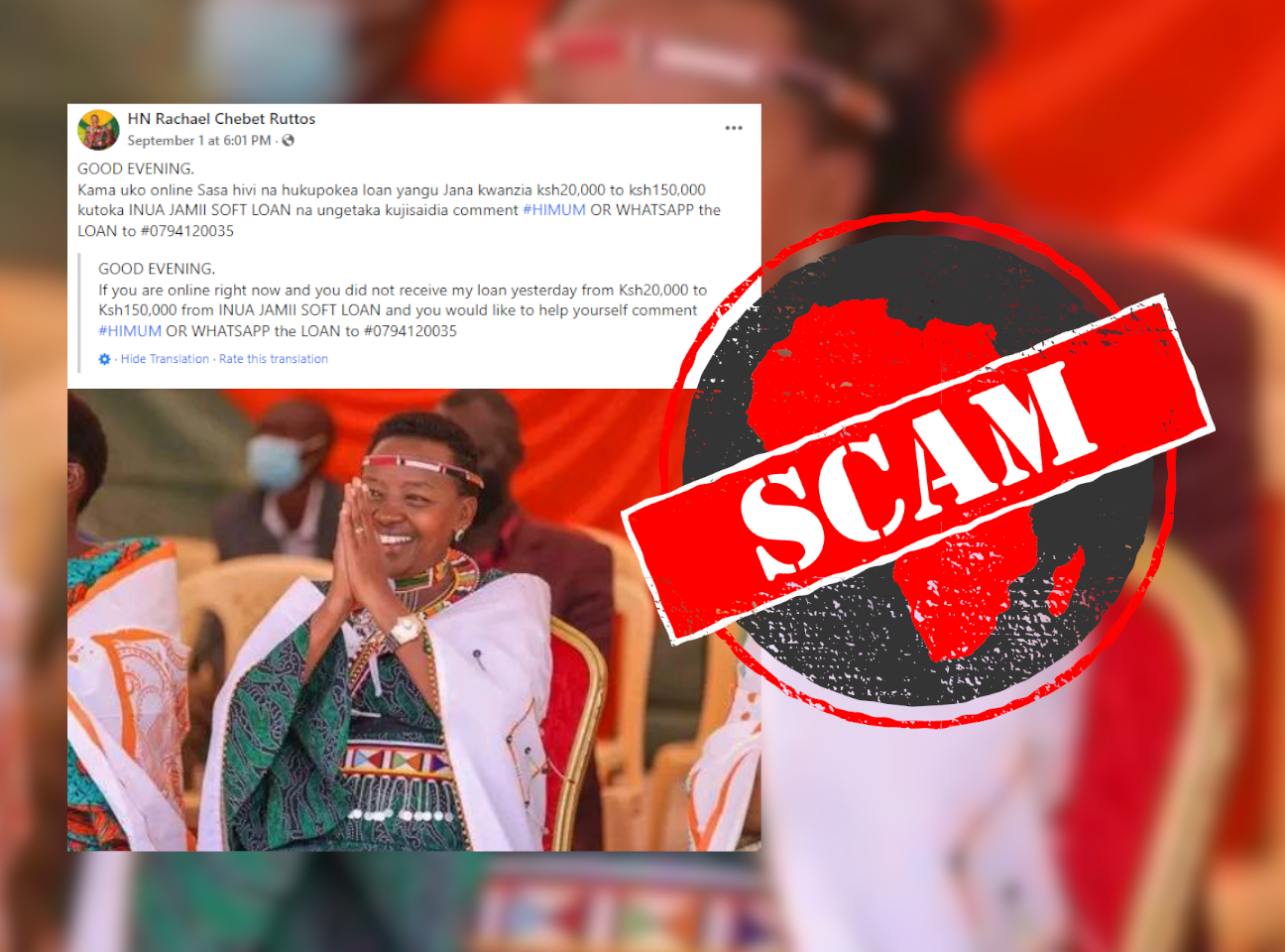IN SHORT: Scammers often use the names of prominent people on their Facebook pages. But if you thought you’ll get a loan from Rachel Ruto, the wife of Kenya’s new president, you’d be wrong.
On 15 August, William Ruto was declared the winner of Kenya’s 2022 presidential election.
Since then, several Facebook accounts have emerged using his name and that of his wife, Rachel Ruto, to scam unsuspecting Facebook users.
One of them is the Facebook account “HN Rachael Chebet Ruttos”.
The account claims to offer Inua Jamii loans. Inua Jamii is a government social safety net for the vulnerable and poor in Kenya.
“GOOD MORNING. Kama uko online Sasa hivi na hukupokea loan yangu Jana kwanzia ksh20,000 to ksh150,000 kutoka INUA JAMII SOFT LOAN na ungetaka kujisaidia comment #LOAN OR WHATSAPP the LOAN to #0794120035,” one of the posts reads.
This is Kiswahili for: “Good morning. If you are online right now and I did not send you a loan of between KSh20,000 and KSh150,000 from the Inua Jamii programme, comment with the word “loan” or send the word to the WhatsApp number 0794120035.”
Another post claims that personal loans as well as loans for school fees, small businesses and emergencies are also available. The account targets Facebook groups with thousands of members.
But is the Facebook account and its loan offers legit? We checked.

Signs an account is fake
The first lady’s official Facebook page “Mama Rachel Ruto” is verified, but the account offering loans is not. None of the loan offers appear on her official Facebook page.
The official page has more than 900,000 followers and has been active since 2013. The dodgy page has only 239 friends and its first message was posted on 1 September.
It is unlikely that the first lady would operate two Facebook accounts, and dedicate one to loans.
The official Facebook page of the Inua Jamii programme has in the past clarified that it does not offer loans. It’s also warned people against sending any money.
It has explained that its objective is to uplift the lives of the poor and vulnerable citizens through regular and reliable cash transfers. It identifies the vulnerable as older people, people with severe disabilities, orphans and vulnerable children.
Africa Check has recently debunked several fake Facebook accounts using the names of president Ruto and his wife.
For more help in identifying fraudsters on social media, read our guide to Facebook scams and how to spot them.
Republish our content for free
For publishers: what to do if your post is rated false
A fact-checker has rated your Facebook or Instagram post as “false”, “altered”, “partly false” or “missing context”. This could have serious consequences. What do you do?
Click on our guide for the steps you should follow.
Publishers guideAfrica Check teams up with Facebook
Africa Check is a partner in Meta's third-party fact-checking programme to help stop the spread of false information on social media.
The content we rate as “false” will be downgraded on Facebook and Instagram. This means fewer people will see it.
You can also help identify false information on Facebook. This guide explains how.




Add new comment